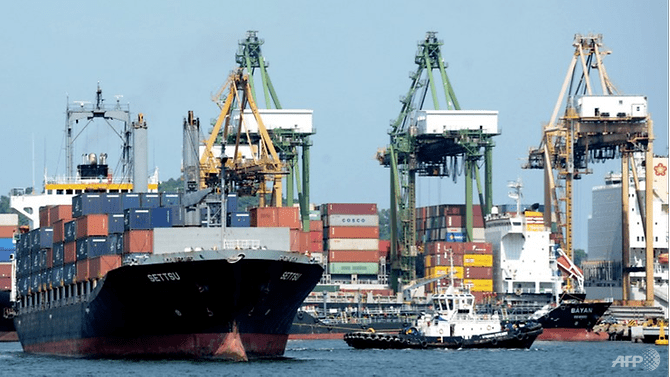6,370 job openings in manufacturing, marine and offshore sectors despite downturn
09 November, 2020

The number of job opportunities in the manufacturing sector has doubled in the last 8 weeks, with about 6,370 openings in the sector by mid-October compared to 3,200 towards the end of August.
These constitute about 61 per cent of the 10,400 openings in the manufacturing sector under the SGUnited Jobs and Skills Package, which also contains 2,710 traineeships and attachments as well as 1,330 training places.
This is announced on Monday (Nov 9) in the 13th edition of the Ministry of Manpower’s (MOM) jobs situation report.
About 4,540 of the job openings - or around 71 % - are for professional, manager, executive and technician (PMET) roles, while yet another 1,830 are for non-PMET roles.
A lot of the openings are in three sectors - electronics, precision engineering and food manufacturing.
Electronics has 1,390 job openings and 670 company-hosted traineeships and attachments, while precision engineering has 1,470 job openings and 440 traineeships and attachments.
Food manufacturing meanwhile has 1,030 jobs, in addition to 240 traineeships and attachments, and 170 training places.
For PMETs - whose median salaries range from S$1,700 to S$6,000 - the top roles include manufacturing engineering technicians, electronics engineers along with software, web and multimedia developers.
For non-PMETs, the very best roles are production clerks, welders and flame cutters as well as machine-tool setters-operators, with median salaries which range from S$1,300 to S$2,500.
As of the end of August, there are 117,500 SGUnited Jobs and Skills opportunities, with about 71,400 government-funded opportunities or public sector jobs and about 46,100 jobs made available from private sector employers, according to the report.
It added that 33,100 job hunters had been given SGUnited Jobs and Skills opportunities by end-August this year, with 13,370 placed in long-term jobs.
MARINE AND OFFSHORE
The report noted that marine and offshore, a sub-sector of manufacturing, has been hard hit recently consequently of weakened rig demand because of a slump in global oil prices, with COVID-19 safe management measures leading to a decline in contracting activities and delays in deliveries of new vessels.
It added that the federal government has extended the Enhanced Training Support Package to encourage companies to upskill their workers during this downtime, with employers who send their employees for sector-specific training programmes between October this season and June next year qualified to receive course fee subsidies as high as 90 per cent.
The skills covered include electrical power engineering, liquefied natural gas (LNG) bunkering, and automation and robotics.
The sub-sector remains focused on longer-term growth opportunities such as for example LNG and sustainable energy-related projects, as well as advanced manufacturing capabilities to boost yard productivity, the report said.
With the marine and offshore sector’s ongoing transformation efforts, employees can look forward to dealing with new and higher-value job roles in the sector such as for example data scientists together with automation and process engineers.
Speaking to the media during a visit to Sembcorp Marine in Tuas, Minister for Trade and Industry Chan Chun Sing pointed to marine and offshore’s commitment to productivity through initiatives such as for example robotics and automation, with the sub-sector having invested S$350 million in “state-of-the-art production technologies” since 2017.
Minister for Manpower Josephine Teo noted the marine and offshore sub-sector - which comprises a network of small-and-medium-enterprises in addition to larger players Keppel Offshore & Marine, Sembcorp Marine and ST Engineering Marine - altogether employs some 77,000 workers.
The sub-sector has experienced many booms and busts, Mrs Teo said, with companies finding themselves short of workers with professional expertise and consultant skills when business accumulates.
As such, companies are incredibly aware of the need to replenish their talent pool, she said.
“(This) is excatly why even in this very hard time within the marine and offshore sub-sector, particularly for marine, there are still about 800 available openings. This shows quite clearly a company's awareness that they have to continue to generate people. In addition, it shows quite obviously that the firms have a plan plus they need to hire persons to help them to move towards that plan,” she said.
Of the 800 openings, 87 per cent - or about 700 - are for jobs, 84 % of which are for PMET roles such as for example process automation engineers and mechanical engineering technicians, with salaries offered which range from S$2,000 to S$7,500 depending on the work requirements and the candidate’s skill sets.
Workforce Singapore offers three professional conversion programmes (PCP) to aid mid-career individuals to help ease their transition - PCP for Marine Engineer, PCP for Marine Assistant Engineer and PCP for Marine Technician.
The report said that more than 70 people, including 30 mid-career workers, have been placed in jobs along with traineeships and attachments in the marine and offshore sub-sector between April and mid-October this year.
Mrs Teo said that SembCorp Marine’s leadership was aware the old image of the “three Ds” of marine and offshore - dirty, dangerous and demanding - had to improve as a result of the workforce’s changing aspirations.
Companies in the sub-sector now see opportunities in new technology and sustainability, she stated.
“Therefore the new three Ds will be decarbonisation and dealing with disruption - (with) disruption being a positive force - and in addition digitalisation,” she said.
Source: www.channelnewsasia.com
